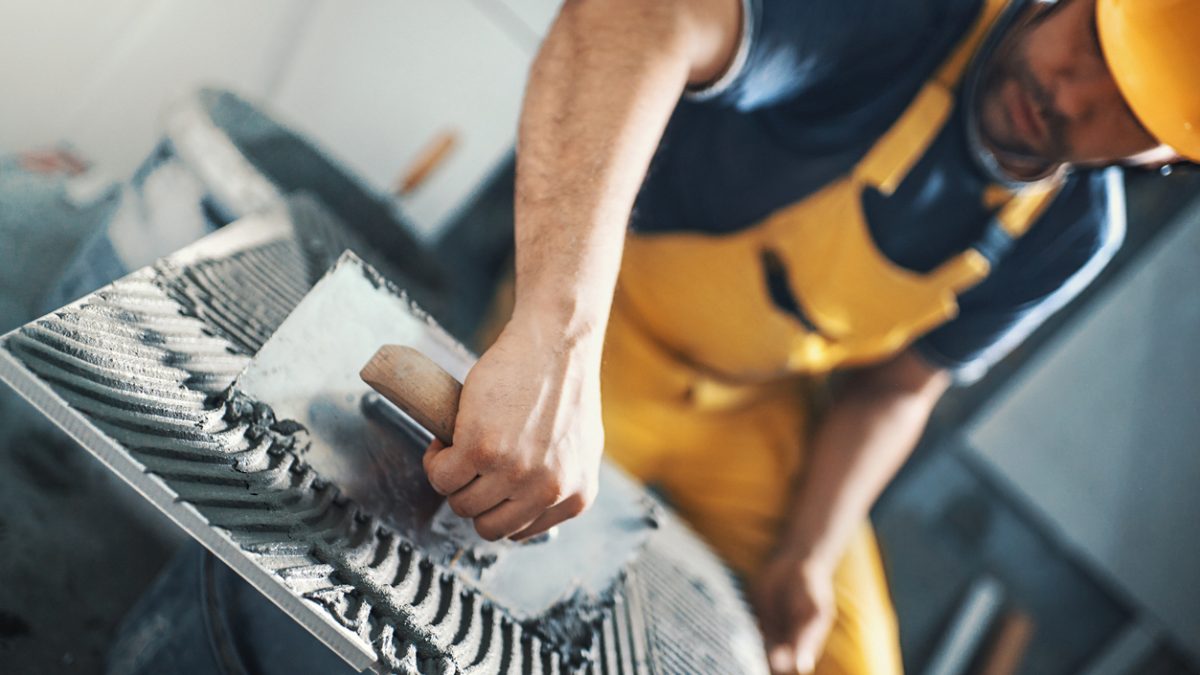
12 Tips For Building Your Own Office From The Ground Up
Building your own office? Here are our top 12 tips for when you want to build your own commercial building, from the ground up.
The decision to create a new commercial structure for your business is a big one. Building your own office from scratch requires a great deal of planning. In order to ensure that the process is a success, there are certain things that you should do.
1. Figure Out Your Financing
One of the most important things to do before you begin constructing your commercial building is to get all of your financing in order. This will involve you gathering all of the information regarding the structure that you’d like to build, as well as the current and projected profit of your business. Knowing early on how much money the bank will lend you for your commercial structure can help you to see if the project can become a reality or not. It may also help you to see the timeline for the project because you may need to hold off on the new structure until you can increase profits.
2. Hire An Excellent Designer
You want this new commercial building to function well for you and meet all of the needs of your growing business. You may have a vision in your head of what you’d like, but the best way to make this vision a reality is to hire an excellent designer. This designer will be able to take your vision and create a blueprint that is structurally sound, meets all commercial building codes, and also meets all of your needs at the same time. Changes can be made to the design as you come up with new ideas, but this foundational design plan can help ensure that your new commercial structure is a success.
3. Choose A Great Contractor
Once the design for your commercial building has been created, it is important to find a great contractor to take this design from paper to reality. In order to find a great commercial contractor, it is important that you do your research. Make sure that the contractor you choose is properly licensed and is also insured. You also want to see some of their previous work to see if you are pleased with it and to gauge whether or not they are a good fit for you. You may also want to see how the two of you interact in terms of personality because you will be spending a lot of time with them over the course of the project.
4. Acquire A Commercial Building Permit
Before you can begin your project, you must have the appropriate commercial building permit. The requirements for a permit varies depending on what city and state you live in, so it is important to become familiar with the laws in your area. You will also need to submit documentation, such as your building plans, as well as fill out and sign several forms. Because this takes time, it is important to account for this in your project timeline.
5. Have The Land Surveyed
With your building permit in hand, you will now want to have the land where you plan to build surveyed. This is important for ensuring that the land is in fact good land to build your commercial structure on. A land surveyor will test the soil to make sure that it can support your structure and will also check to see if there are any pre-existing structures beneath the soil. They may also be able to provide you with information on the history of the surrounding land, which you may also find helpful.
6. Get Multiple Bids
When you are working with your commercial contractor to get bids on things like electrical work, plumbing, etc., it is very important that you get multiple bids. Getting more than one bid can allow you to get the best price for the work that you would like done. It also gives you the opportunity to meet with multiple sub-contractors. This allows you to see how experienced they are, if they are organized, what kind of projects like yours they have done in the past, if they stay on task, etc.
7. Plan For Potential Setbacks
No matter how detailed and perfect your building plan is, you may experience setbacks. The weather may not be in your favor, the wrong part might be ordered, a certain item may be on backorder, something may break on the job, an employee may be ill, and the list goes on. These setbacks don’t have to completely derail the project and can be better handled if you’ve planned for them and know what to do when they happen.
8. Consider What Equipment Will Be Needed
You will likely need a great deal of construction equipment to complete your commercial building. It is important that you factor in the cost of this equipment. You should weigh out the pros and cons of renting vs. purchasing each piece of equipment. Renting is often cheaper, but can get pricey if you need to keep the equipment for a great deal of time. Renting is also good if you only need a certain piece of equipment for a single project. Purchasing may be a better idea if you can use the piece of construction equipment in the future.
9. Keep Good Records
In order to protect yourself, it is very important that you keep good records. You will have a lot of people working for your throughout the course of your construction project and the only way to really keep track of everything is to document. This ensures that the proper amount of money is paid to everyone who is working for you and it helps to keep everyone honest with you because you have recorded their bids, timelines for completing certain projects, etc.
10. Consider The Fluctuating Cost Of Building Materials
The cost of certain building materials will fluctuate based on supply and demand. This can change depending on the season, the amount of construction going on in your area, natural disasters, etc. Because these fluctuations can sometimes be hard to account for financially, it is important that you budget in extra money just in case something were to raise in price. Then, if something were to go stay at the same price, or even go down in price, you simply have extra money in your budget.
11. Hire A Landscape Engineer
Once the commercial building is complete, it is then time to have the exterior landscaped. In order to make sure that the landscape is properly designed, engineered, and otherwise completed, it is important to hire a landscape engineer. They will work with you to create a landscape design that looks great and works for you logistically as well.
12. Be Present During The Process
From start to finish, it is very important that you are present for the project. This can go a long way in making sure that everyone stays on task and things are done like you want them to be done. Also, be sure that you contact your contractor regularly to see how things are going and to be made aware of any updates with the project.
These steps will ensure your project will go as smoothly as possible. While problems usually crop up when it comes to a big construction project, the best way to rise to challenge is excellent planning and communication. At Antham, we’ve been building commercial offices for 15 years. All of our projects include an in house project manager, dedicated site supervisors and GUARANTEED quality workmanship. If you’re ready to build the office of your dreams, contact us.
Recent Posts

Want to Reduce Noise in the Office? Improve Your Acoustics

6 Of The Most Common Office Design Mistakes You’ll Want To Avoid

The Benefits and Drawbacks of Open Ceilings

3 MORE Upcoming Interior Design Concepts for the Office Space

Tips From a Commercial Contractor: The 5 Most Common Complaints About Office Design








